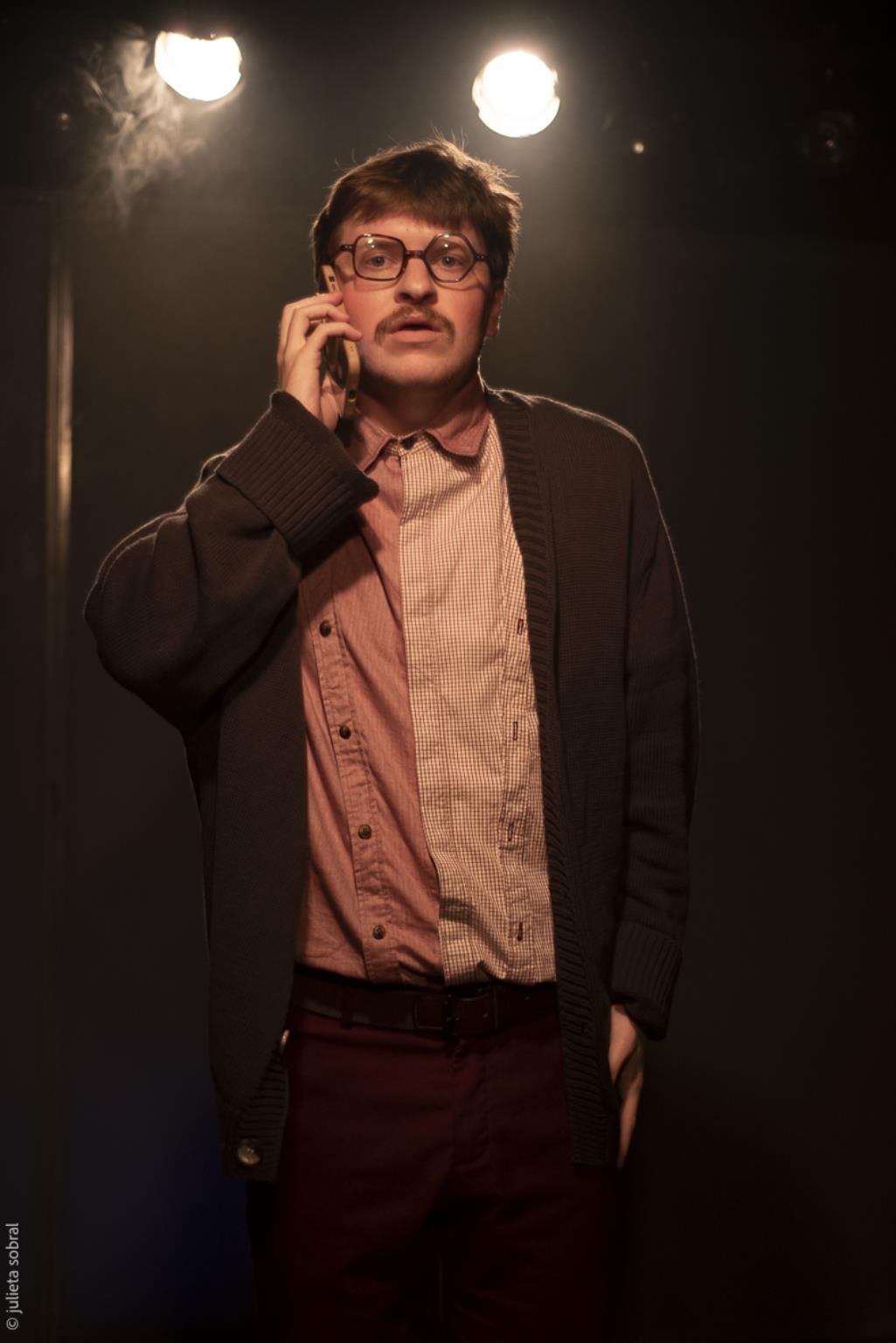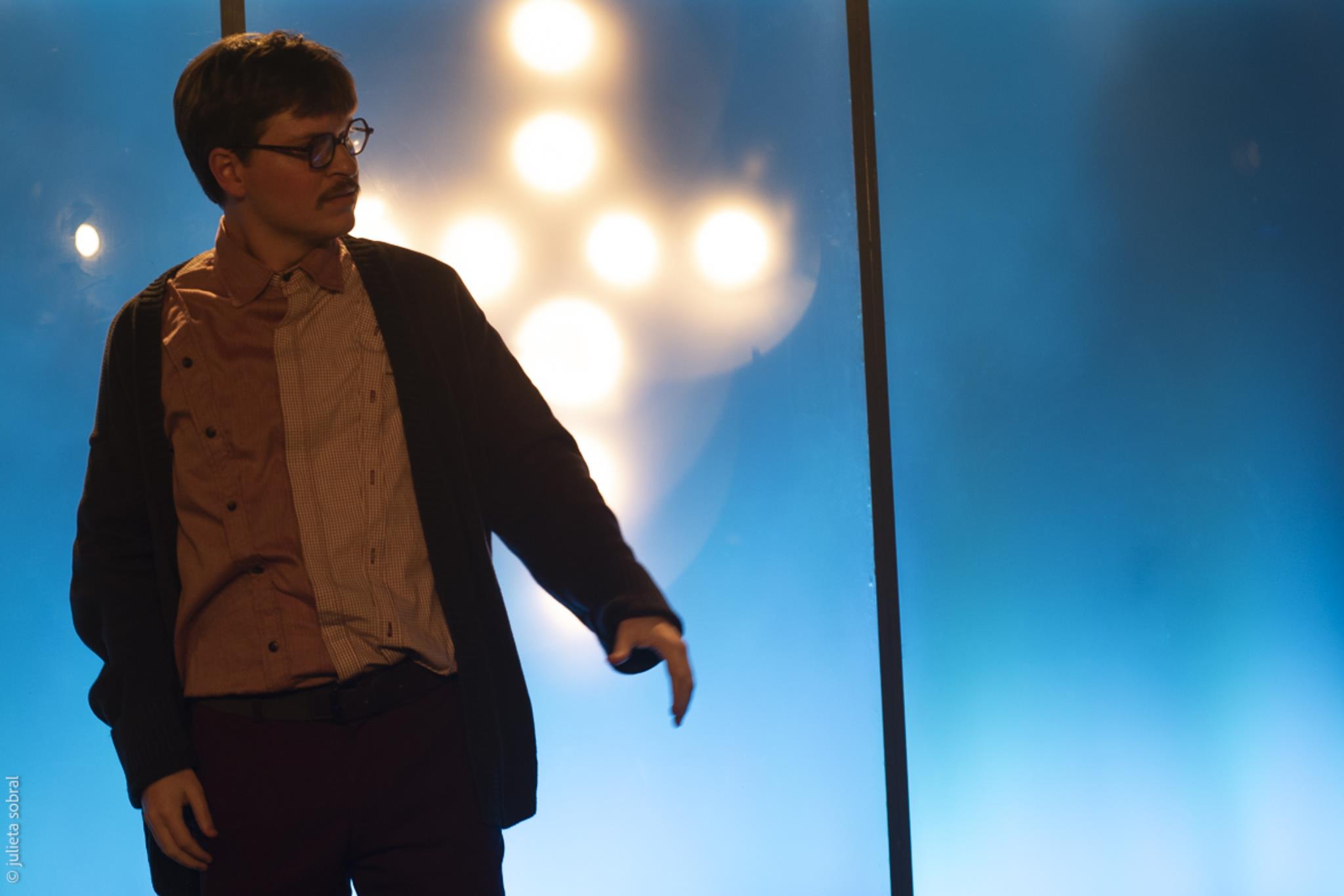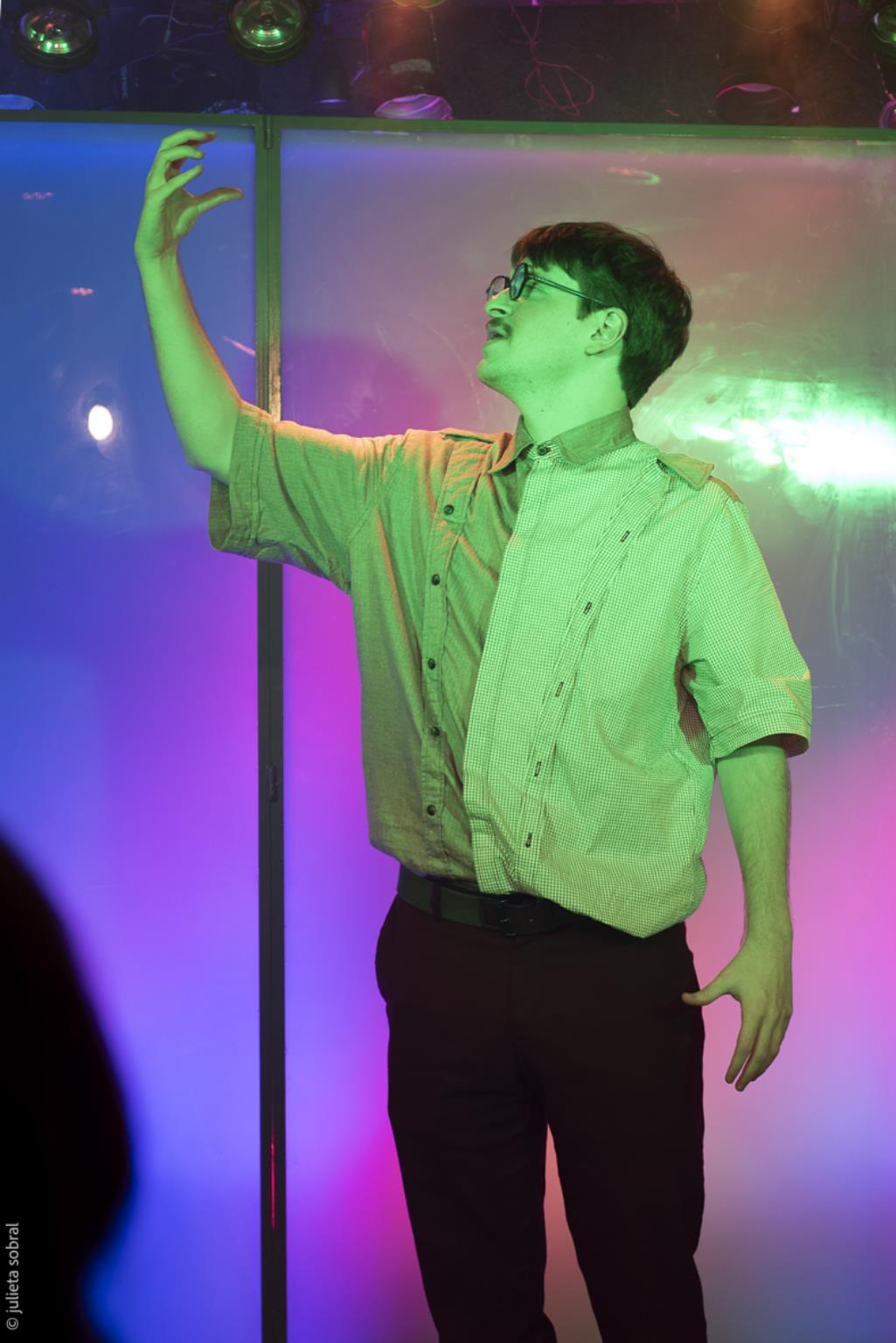
Known for his work as a screenwriter for Porta dos Fundos, Gustavo Vilela makes his playwriting debut with the monologue “The Plastic Dinosaur,” starring Rafael Saraiva and directed by Barbara Duvivier. The play reopens on August 13th at the Glaucio Gill Theater, with one-off performances on the 13th, 20th, and 27th, at 8 pm, and will have its text published as a book by Editora Cobogó. The play follows Marcelo, a young man torn between two worlds—his family and his friends—who, hesitating whether or not to enter a bar, immerses the audience in his memories, inner conflicts, and existential reflections.
“The Plastic Dinosaur” was born from a hesitation, a moment of suspension between two worlds. What draws you so much to this kind of silent internal conflict?
I think these internal conflicts happen all the time in everyone. They can manifest in different ways and with varying degrees of severity, but I believe they’re feelings common to everyone, and that’s why I enjoy seeing them portrayed. They’re mini-issues, but they’re sort of like “our mini, everyday issues.”
You wrote the text with Rafael Saraiva in mind. What was the challenge of creating something that felt “familiar, but not autobiographical” to him?
Rafael carries this inadequacy and also has a collection of little neuroses constantly going on in his head. When I started writing, I simply set it in my mind that the text should serve his immense talent and the tone I felt he wanted to convey on stage. He was a constant inspiration, but the choice to not use anything autobiographical was precisely to give him even more space to create a new story. It’s really cool to see him creating connections between his own life and the text, making everything so much better.

The play shows how a seemingly simple event—whether or not to enter a bar—can reveal deep layers of identity, memories, and insecurities. At what points in your life have you felt like you were standing in front of a “bar door”?
I think this happens all the time to almost everyone. From trivial things like “to be appointed or not to be appointed” to job changes and relationship issues, we’re constantly facing these internal dilemmas, and most of the time, we imagine them to be much bigger than they actually are. We live in a time when every small defeat feels like a resounding failure, and our internal court seems increasingly voracious.
Making your playwriting debut with a text that’s already being turned into a book is a remarkable achievement. What was the process of translating it from theater to paper like? Does the text gain a new layer when it’s read, not performed?
I’ve always loved reading plays, and I think the effect of putting a play together in your head as a reader is really cool. Each time a play is performed, it’s different, and I think reading it is more of a version, too.

You’re known for your witty and critical humor in Porta dos Fundos and projects like VRAU CAST and Falha de Cobertura. What was it like to trade that more comedic approach for a more existential and emotional tone in theater?
Writing for Porta dos Fundos and Falha de Cobertura has always been a dream of mine. These are languages I didn’t create, but I learned to use them and love them. Vrau came a little later, a joint creation with Rafael and Caíto. These are works and languages I love. But I think this type of play is where I feel most natural in my writing. It’s the language I feel most at home in, and that’s why I was so happy to undertake this project.
The play is about someone trying to fit into two environments at once, something very common for a generation living between family expectations and social life. Do you think this “fragmentation” is one of the greatest contemporary dilemmas?
Dealing with expectations has been much more difficult today than it ever was, I think. We have this parallel virtual existence where everyone seems much happier than you, which is almost never true, and we’re also living in a time of constant pressure for success that we don’t even know is our vision of success, while the reality of things changes all the time. The generation that is now in its 20s is facing a social and technological revolution that seems to challenge our very idea of existence in the world. There’s a lot of good in this, but also an anxiety that seems to be stronger too.

What surprised you during the creative process with director Barbara Duvivier and Rafael Saraiva? Was there a moment when the script gave you something you didn’t expect when you saw it on stage?
I only realized there was a play there after seeing the work Bárbara and Rafael did with the text. Their creations made everything better, and they always made excellent suggestions. Seeing the care they took with each movement and the intonation of each phrase made me learn a lot and admire them even more.
How do you see the importance of addressing issues such as anxiety, self-awareness, and social discomfort within theater, especially in a monologue format?
I think these themes are and will continue to be widely portrayed in all art forms, but what I like about what we did in the play was treating them in an almost banal way, without giving too much weight to anything. A monologue can often overstate what’s being said, and our effort was, above all, to be entertaining and relatable for the audience. Life is already very complicated; theater doesn’t need to be.
Follow Gustavo Vilela on Instagram

